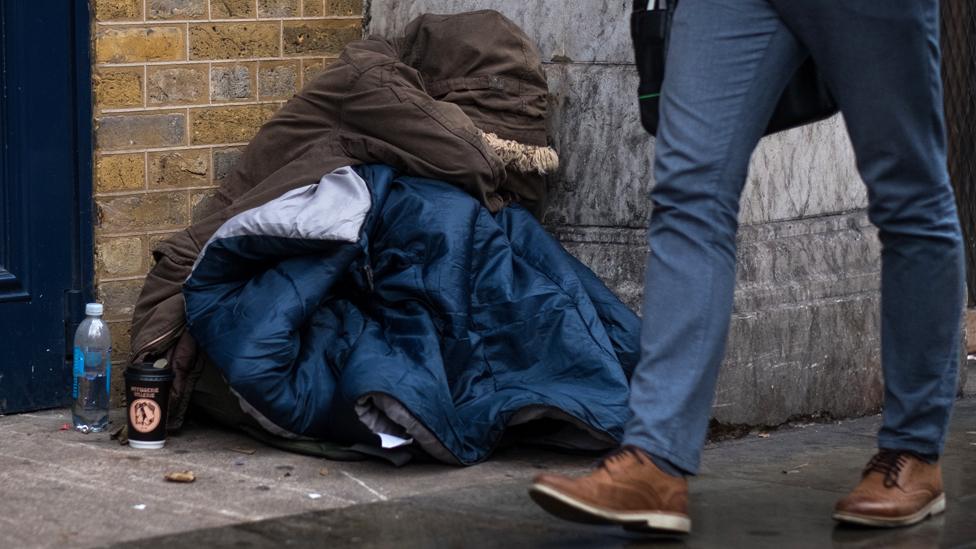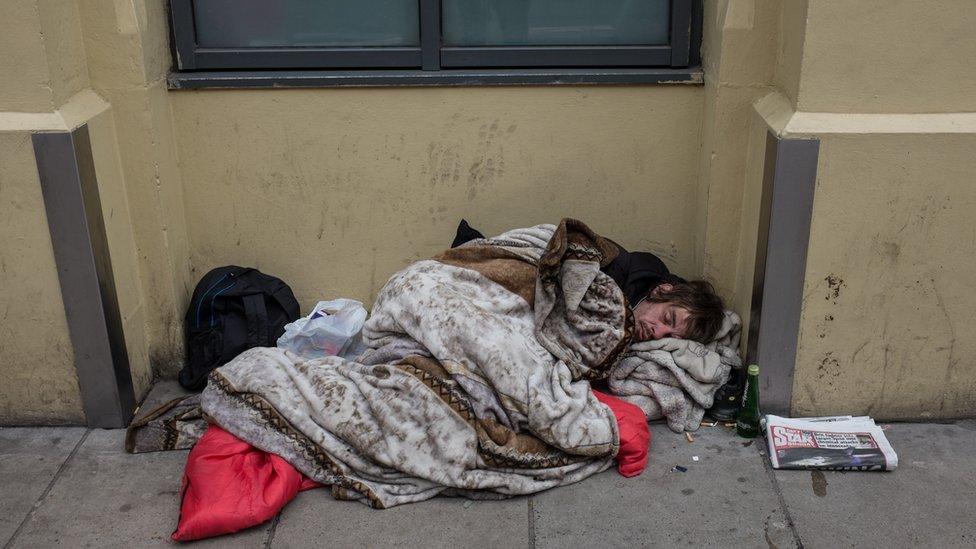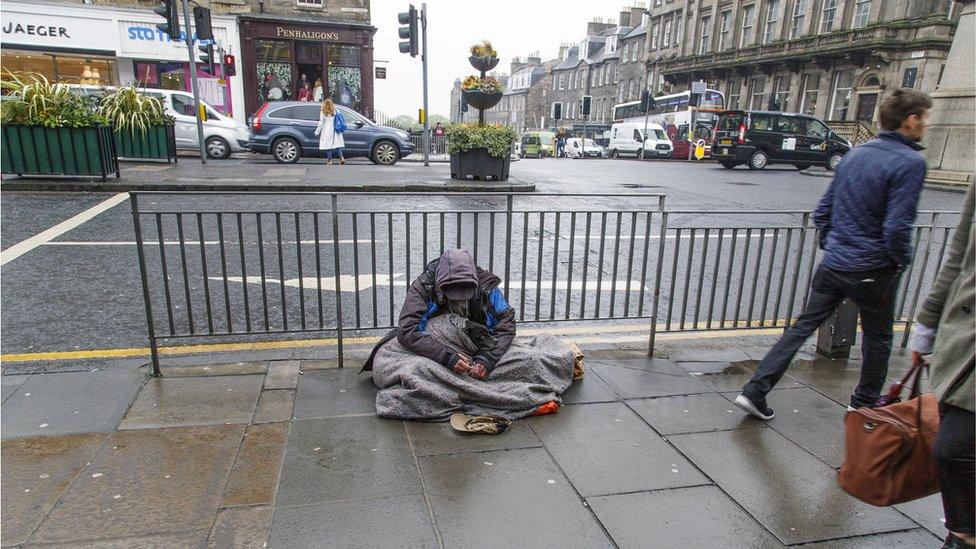Homelessness applications on the rise in Scotland
- Published
- comments

The number of applications for homelessness status in Scotland has gone up for the second year in a row.
Latest Scottish government figures, external show 36,465 people asked for help from their local council in 2018-19, up 3% on the previous year.
It is the second year applications have risen after a period of consistent decline since 2005-06.
The Scottish government said it was committed to ending homelessness for good.
Glasgow saw the biggest increase in the number of people applying for homelessness status with 5,679 applications last year, up 8% on 2017-18.
The city also accounted for 95% of the 3,535 Scotland-wide cases where a council did not fulfil its legal obligation to offer temporary accommodation to a homeless person.
Elsewhere, East Ayrshire experienced a 29% hike in homelessness applications, while Fife dealt with 10% more than the previous year.

Nearly 3,000 people were recorded by the official figures as having slept rough at least once in the three months prior to seeking help from their local council
Gordon MacRae from Shelter Scotland said the figures exposed the devastating impact Scotland's "housing emergency" was having on people's lives.
He added: "This is the human cost of our collective failure to build the homes we need. On an industrial scale, thousands of men, women and children are being denied their most basic right to a safe home."
Mr MacRae said a household was being made homeless in Scotland every 17.5 minutes.
"The question every citizen of Scotland must ask ourselves is how much longer are we prepared to tolerate this," he said.
Overall, a total of 29,894 people were assessed as homeless or threatened with homelessness in 2018-19, a 2% rise on the previous year and the third year in a row the tally has gone up.
The figures also showed that rough sleeping remained an issue, with 2,876 people reporting they had slept without a proper roof over their head at least once in three months before applying for help.
That figure was 8% higher than the 2017-18 tally.
'Specialist support'
There were a total of 620 breaches of the rules on suitable accommodation offered to vulnerable people or families, an increase of 225 compared to the previous year.
A total of 465 of these were in Edinburgh.
Increasing numbers of people were also staying in temporary accommodation, such as B&Bs, the figures reveal.
Housing Minister Kevin Stewart said it was "unacceptable" that citizens of a country with some of the strongest rights in the world found themselves without a home.
He added: "Our Ending Homelessness Together action plan sets out a range of measures that support our ambition to eradicate rough sleeping, transform temporary accommodation and end homelessness altogether.
"There are multiple, complex reasons why people sleep rough - many have experienced drug or alcohol addiction problems or suffer from poor mental health and require specialist support, in addition to a home, to tackle these issues.
"We are investing in the Housing First programme because we recognise a permanent home as the best, stable platform to address needs and build a life."
- Published12 February 2018
